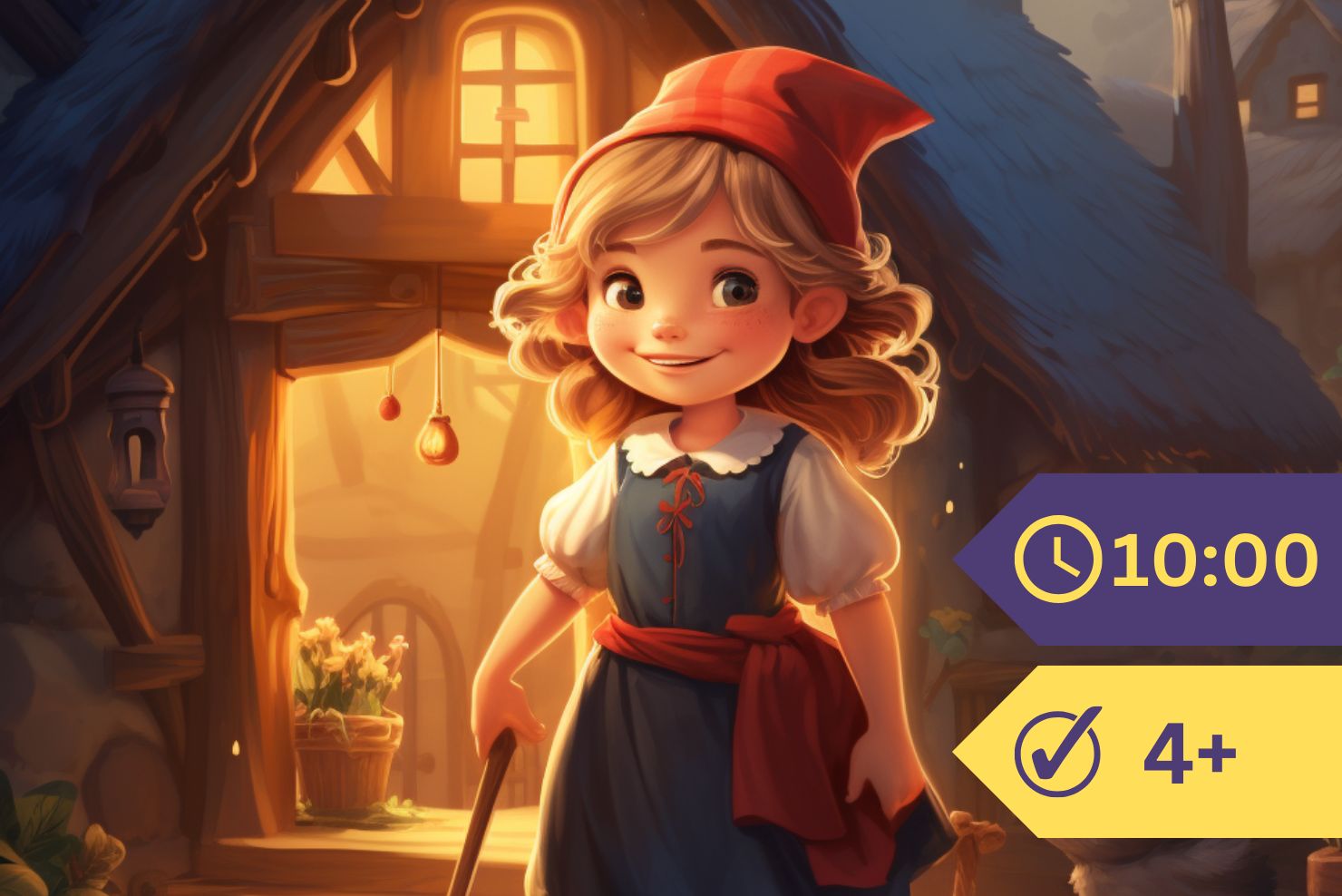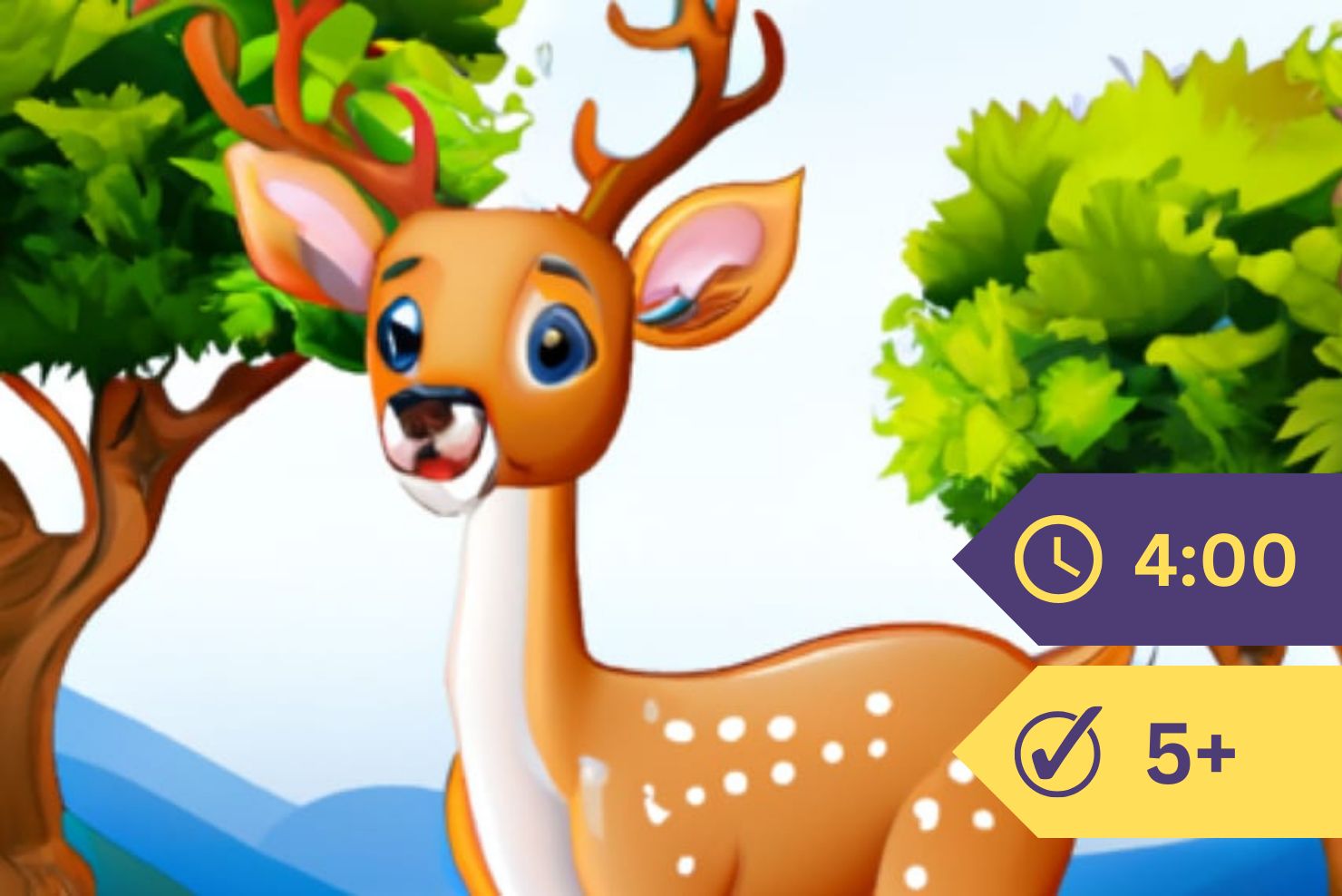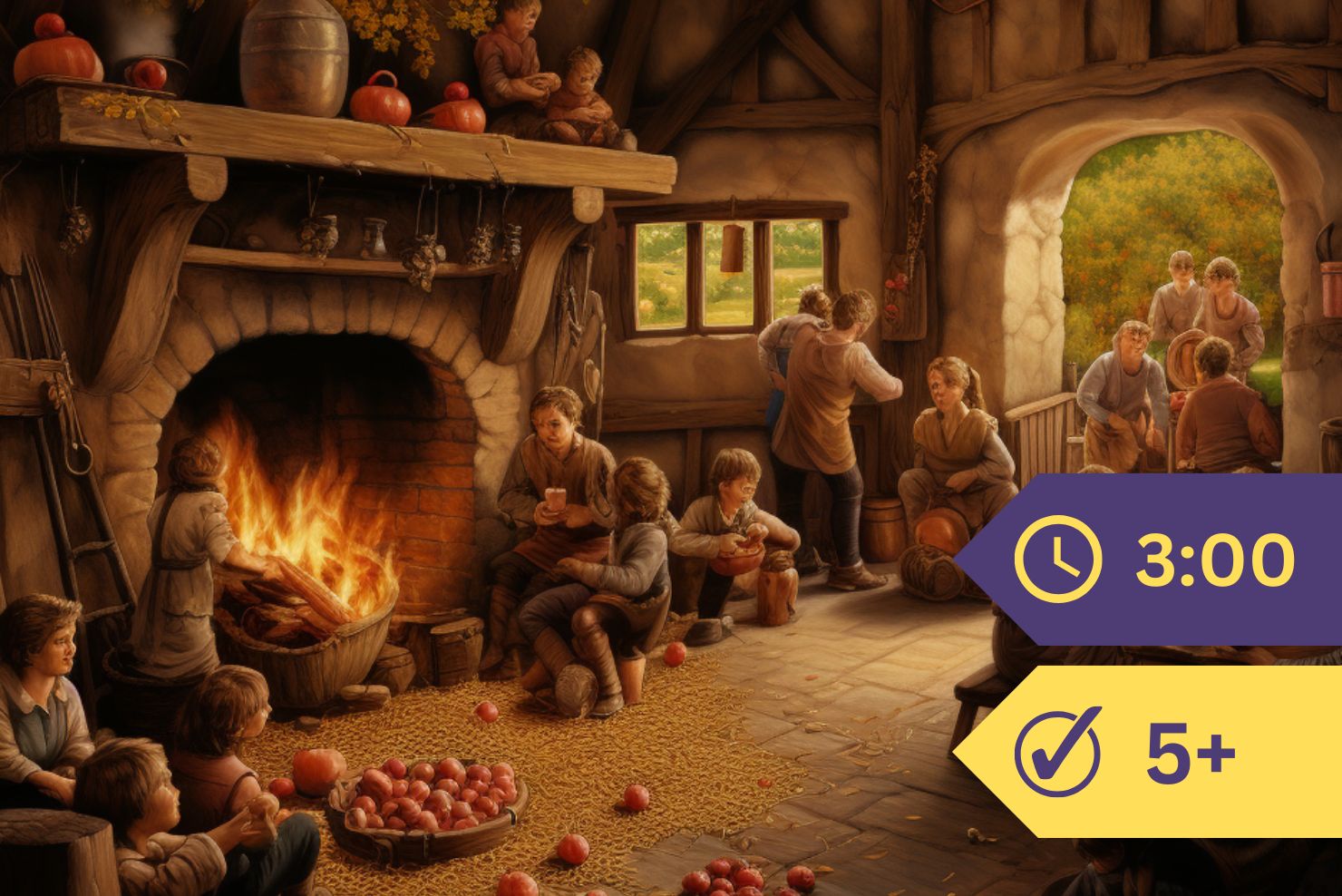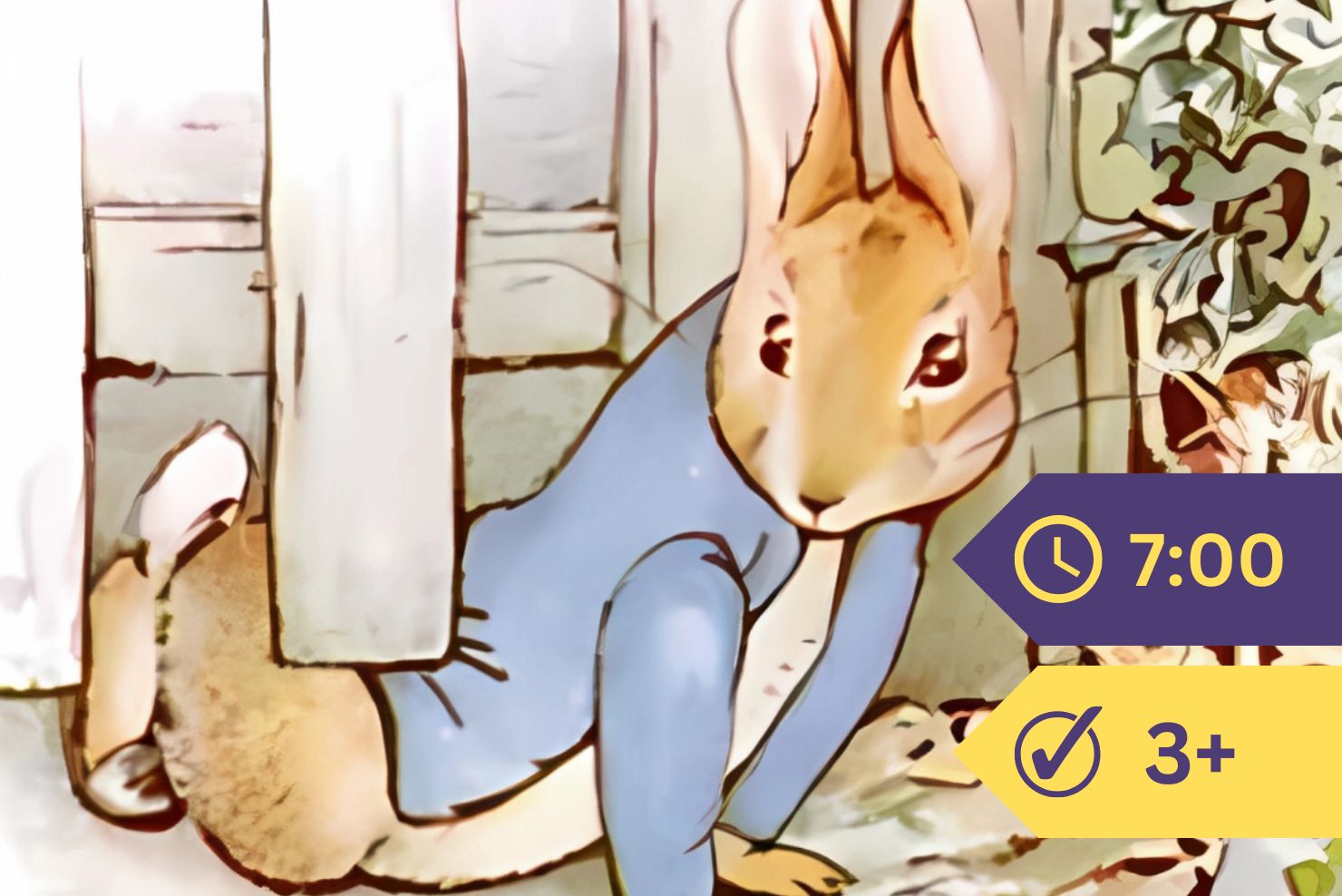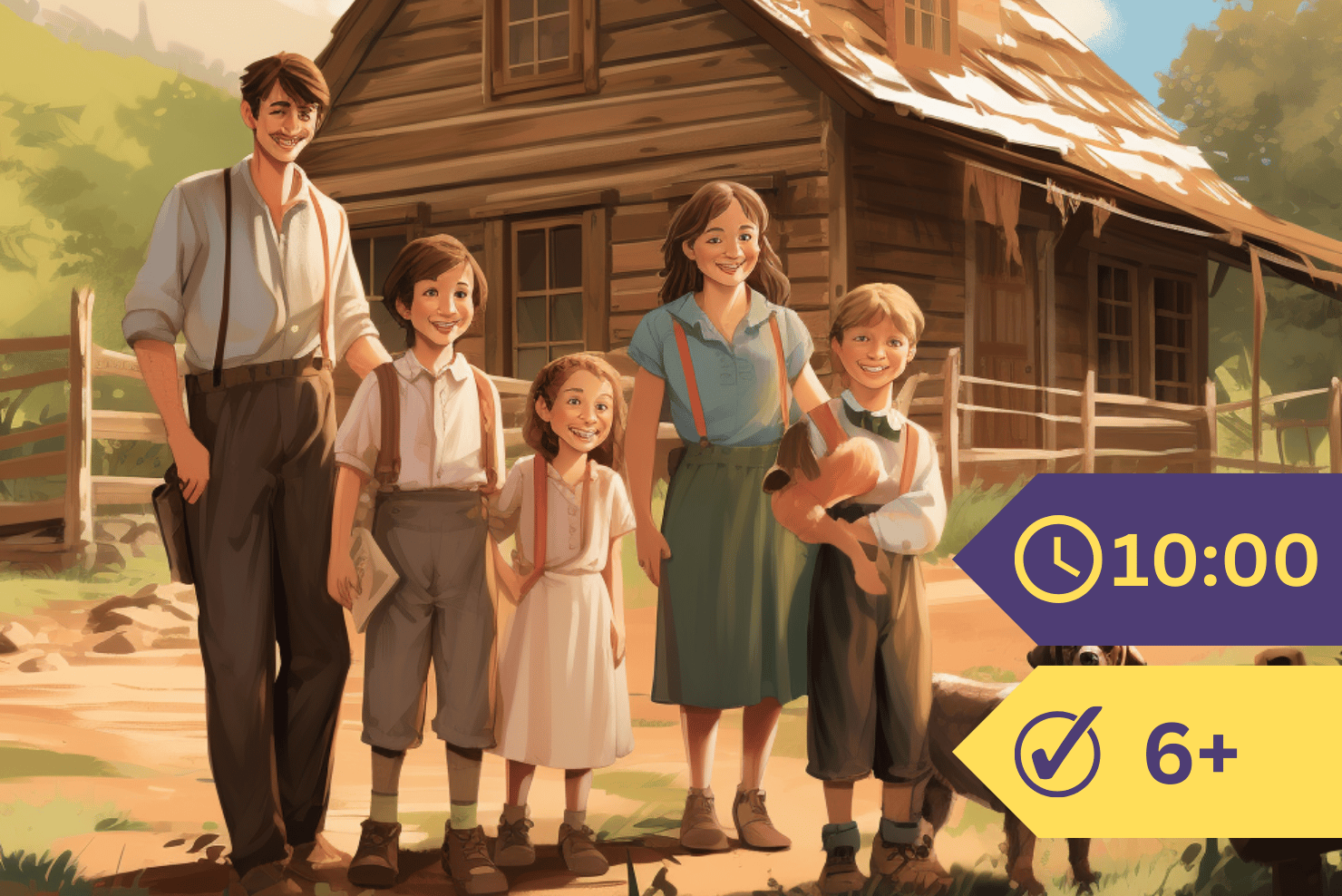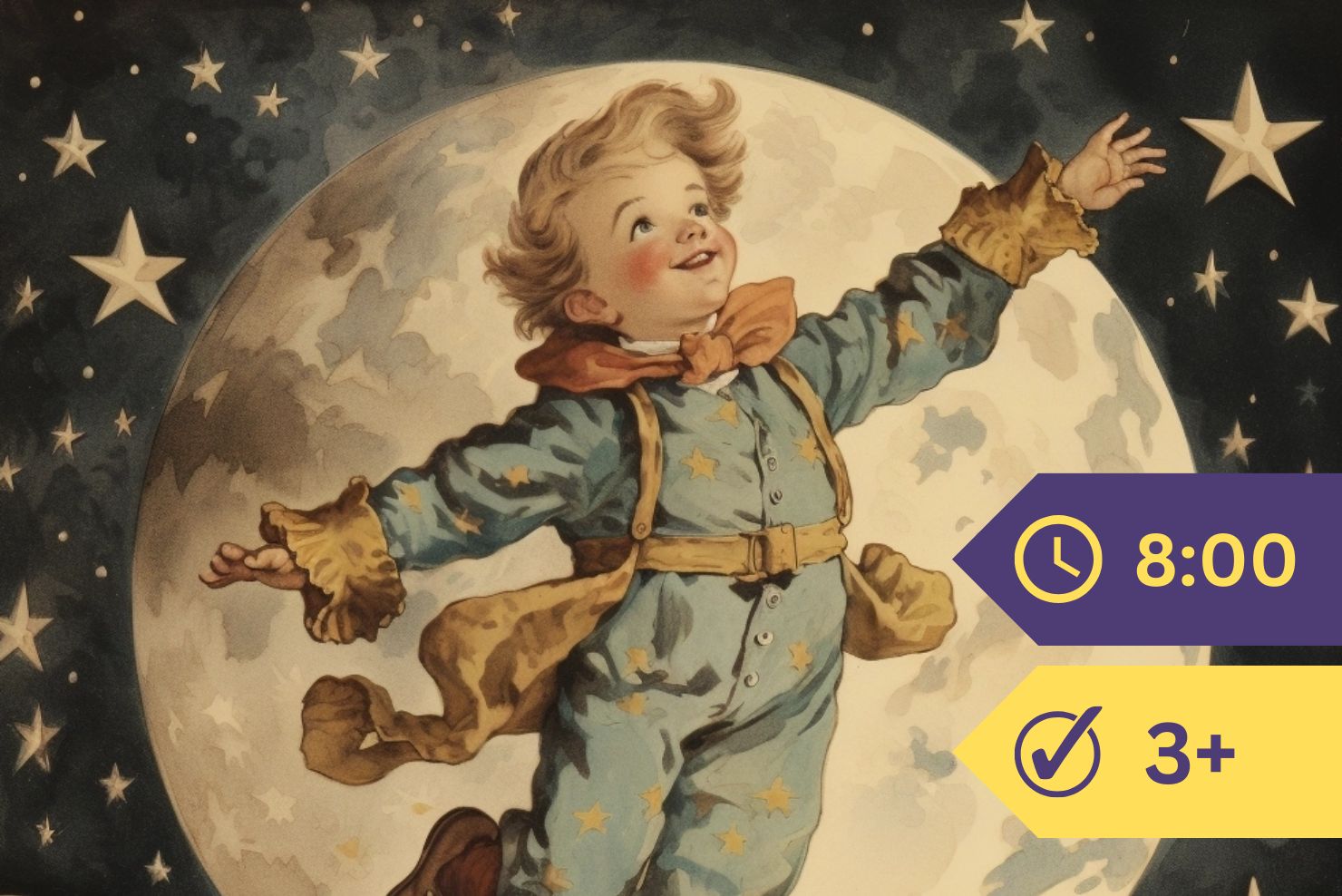One morning when the little king waked up, all of his pet rabbits were gone, and nobody, not even the owl who had been awake all night, knew anything about them. They were white rabbits with pink eyes and pink ears, and you can just imagine how the little king felt when he heard they were lost.
“Find my white rabbits and I will give you whatever you ask of me, even if it’s the crown from my head,” he said to everybody who came to see him; and, of course, everybody started out at once to look for the rabbits.
The princes and princesses, the dukes and the duchesses, the counts and the countesses, and all the other fine ladies and gentlemen of the king’s court went in carriages to the city to look for the rabbits, and they all came back very happy. They had not found the rabbits, but they had bought some rabbits made of candy at a confectioner’s shop, and they were very much pleased with themselves.
“These are so delicious and sweet—much sweeter than real rabbits,” they said, but the little king did not think so.
“They can only be eaten,” he said, and he had them carried away to the pantry.
The little king’s soldiers felt very certain that the king in the next country had taken away the rabbits, so they marched over the hill to bring them back, beating their drums with a bum, bum, bum. Their uniforms were as red as a cock’s comb, and they were as brave as lions, but they had to come home without the white rabbits. The king of the next country had never so much as seen the tips of their ears.
“King, we might know,” said the hunters. “The foxes have carried the rabbits away to their dens, and we will go and bring them back or know the reason why,” and they hastened to the woods with their guns. Bang, bang—they, too, made a great noise, but it did no good. The king’s rabbits were nowhere to be found.
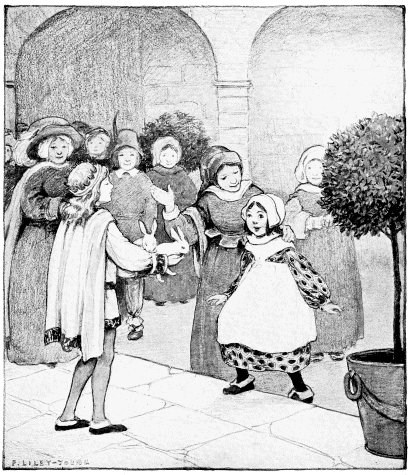
The servants all went to the park. “If the rabbits are anywhere they are here,” they said, and they told the park policeman about them.
“White rabbits with pink eyes and pink ears are not allowed in the park,” he said, so the servants had to go home without the rabbits, as all the rest had done.
The king’s gardener went to his garden in a hurry. “I’ll not have a leaf left,” he said to himself. But when he got to the garden every leaf was in place. The pink roses were just opening their buds in the sunshine, and the white pinks were nodding in the breezes, but not a sign of the white rabbits with pink eyes and pink ears did the gardener see.
The gardener’s little daughter Peggy went to the rabbit hutch first of all. She knew that the rabbits were not there, of course, but she had to begin her search somewhere. Nobody, not even the little king himself, loved the white rabbits more than Peggy did. She knew their names, and how old they were, and what they liked best to eat. Every morning as soon as she had eaten her own breakfast she came up from the little cottage where she lived with her mother and father, to bring them lettuce and cabbage leaves. It made her very sad to see the empty hutch, and two bright tears shone in her eyes.
Before they had time to roll down her cheeks Peggy saw something that surprised her very much. It was a hole in the corner of the fence that was built around the rabbit hutch. As soon as she saw it she dried her eyes, and ran through the gate into the road behind the barnyard. The rabbits were not there, but in the dust that lay thick and white along the road were many little marks that looked like the prints of rabbit feet.
“Oh, so this is the way they went,” said Peggy, and she followed the tracks as long as she could see them.
By and by she came to a cool green lane that led from one side of the road. That was the very place for rabbits, Peggy thought.
“Bunny, bunny, bunny,” she called as she peeped in. Not a rabbit or a rabbit track was to be seen, however, and Peggy was hurrying away when she spied by the path a bunch of green clover all tattered and torn, just as if—just as if—
“Rabbit teeth have been nibbling these leaves,” cried Peggy joyfully, and she hastened down the lane expecting to see the rabbits at every turn. But she did not find them, though she looked behind every tree, and into every nook and corner from one end of the lane to the other.
There were two roads at the other end of the lane. One led over the hill to the next country. There were many footprints on it, but they were only the ones the soldiers had left when they marched away to find the white rabbits. The other road ran by the woods where the hunters had hurried. Grass grew upon it, and flowers nodded over it, but there was not a single nibbled leaf to show that the rabbits had been there.
“Which way shall I go?” said Peggy when a breeze blew by. It had been blowing over somebody’s garden. Peggy knew that as soon as it passed.
“I smell cabbages,” she cried, and away she ran by the woods, and through the flowers, till she came to an old woman’s cabbage patch. And there, eating cabbage leaves to their hearts’ content, sat the little king’s rabbits! Peggy ran home as fast as she had come; and great was the rejoicing in the king’s palace when she had told her news.
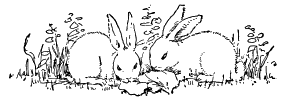
“I will give you whatever you ask, even if it’s the crown from my head,” the little king said to her; and all the fine ladies and gentlemen crowded around to hear what she would say.
“A carriage and horses,” whispered one.
“A bag of gold,” said another.
“A house and land,” cried a third, for they all wanted to help her choose.
But Peggy knew what she wanted without anybody’s help.
“If you please, your majesty,” she said, making the king a curtsey, “I should like a white rabbit for my own.”
And—do you believe it?—the little king gave her two!



